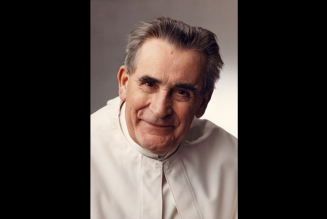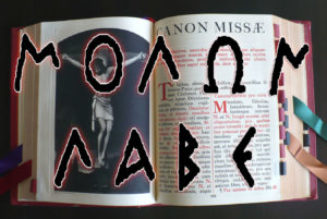“There’s no part of man more like a dog than brazen Belly, crying to be remembered…” Homer, The Odyssey
As the Lenten season or what is also called the Great Fast comes to its culmination, I wonder whether my fasting has yielded the hoped-for fruits. Here I reflect simply from a natural or philosophical perspective on disciplining my bodily appetites.
A central feature of Aristotle’s view of human nature is that the bodily (or ‘sense’) appetite can be formed by repeated good actions. While this appetite will always remain beyond the full control of reason and will, nevertheless it can be rendered increasingly amenable to the direction of our rational powers. The cardinal virtue of temperance, for instance, consists in a habitual disposition of the sense appetite to move in accord with right reason. Aristotle uses the beautiful expression that our sense appetite and the power of reason can ‘speak with one voice.’
One hoped for fruit in fasting, then, is that our inclinations, in this case first of all for food, come more under the sway or direction of reason. As Homer points out, our belly can be much like a brazen dog, and thus have particular need of transformation. The comparison of bodily appetites and a dog is apt, I think, for two reasons.
First, lacking a rational power, a dog acts by the passions of its sense appetite, though granted these passions can be rather sophisticated. Second, the very nature of a dog comes to fruition under proper human training. (Here we might think of those dogs who seem to ‘move as one’ with a respectful and watchful master.) In this a dog and the human sense appetite have a significant commonality; for, our sense appetite, too, most achieves its end or flourishes when governed well by reason.
The comparison offers multiple angles. A badly trained dog is in fact a menace. Understandably, it cries to be remembered in inopportune ways. Similarly, the badly trained sense appetite is a menace, so crying out for attention that it disrupts life.
The well-trained dog on the other hand is a thing of beauty, happy in itself and capable of positive relationships with people. Similarly, the sense appetite imbued with reason both functions well in its own channel while also interfacing positively with the higher powers of reason and will.
A brazen dog is not simply to be slapped down, any more than the desires of sense appetite are simply to be repressed. Each is to be imbued with reason, in order to bring out its inner potential. A well-trained dog can be turned loose, for it will act reliably in concert with its master. A well-trained sense appetite, similarly, is rendered capable of ‘coming to the table,’ as it were, and partaking in the fulness of human life.
Perhaps this is why a sign of a good Lenten fast is a deeper capability of an Easter feast, wherein we bring our lately chastened appetite to the table.
I for one have quite a way to go in my fasting. But I am glad to realize that my celebration too should be of a piece with my fasting, and so tend toward the same end: fulness of human life, both natural and supernatural. Indeed, I am encouraged to persevere in my fasting and to enrich my practice of feasting. ~ ~ ~
This week’s VIDEO: Why Your Home Can Change Everything
“for no one is suddenly made perfect.” Venerable Bede Discouragement is a primary even if oft unnoticed enemy of the good life. Frankly, I often see it; and experience it. People with high ideals and fond hopes, both in what they want for themselves and their loved…
“One must always tell what one sees.” Charles Peguy So many great conversations never happen. There is nothing like sharing insights with a friend into things that matter, and even things that don’t matter so much. But why is it so difficult? One of the great…
The words ‘home at last’ are uniquely powerful. The desire to be at home is so deeply rooted in us that we don’t question it. If we see these words on a tombstone we scarcely notice; or we smile and think, of course. In the end where else would one want to be? It is…
Husband, father, and professor of Philosophy. LifeCraft springs from one conviction: there is an ancient wisdom about how to live the good life in our homes, with our families; and it is worth our time to hearken to it. Let’s rediscover it together. Learn more.












